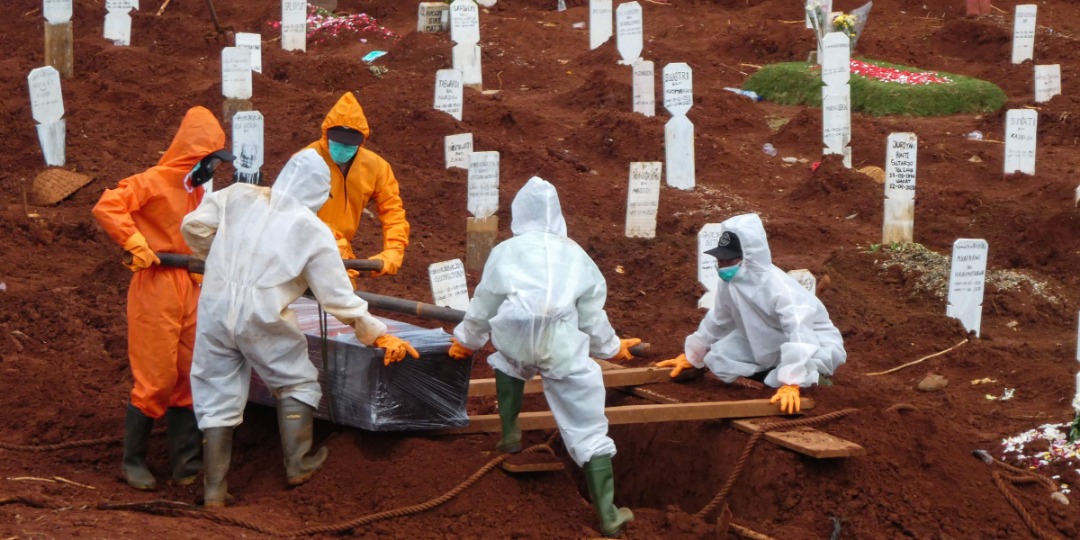A Nigerian researcher has attributed the low fatalities of the novel coronavirus recorded in sub-Saharan Africa to perennial therapeutic dosing of Chloroquine on patients with bouts of malaria over the years.
He, however, said the development was in addition to other limiting factors such as inadequate personal protective equipment and screening facilities to detect the virus in the region.
In paper titled, ‘An analysis of the high fatality cases of nCOVID-19 in the US and Europe compared to sub-Saharan African countries in view of the reported success in the use of chloroquine derivatives,’ recently submitted for peer review, professor of Clinical Pharmacy at Igbinedion University, Ahmed Mora, said the bout of malarial attacks suffered by African countries since 1940s when the drug was first introduced, had metaphorically made the people develop ‘thick skin.’
“It has made them develop thick skin to the extent that an antimalarial drug like chloroquine that they have consumed therapeutically over time now appears to be successful in fighting off coronavirus, the nature of the latter being a virus and the former a parasite notwithstanding.
“This, outside other factors such as inadequate healthcare systems, limited or lack of equipment for screening for nCOVID-19 and low level of health literacy, could be responsible for the low figures of confirmed cases of the virus from the region.
“This paper has generated a hypothesis that can be tested in high quality randomized controlled clinical trials to provide more empirical evidence,” he said.
While noting that though chloroquine prescription (and its hydroxychloroquine variant) is not an authoritative first line treatment regimen, the researcher declared that it has nevertheless proved effective in saving lives, especially in the United States which, so far, has the highest number of COVID-19 infections globally.
“For decades, Sub-African countries have a long history of successful experiences in the use of chloroquine and its derivatives as a first line drugs of choice in the treatment of Malaria.
“This included the widespread use of bark and leaves of Cinchonathat, which is very rich in quinine in various formulations, and later, chloroquine, hydroxychloroquine, and others as the synthetic derivatives of quinine in the treatment of malarial parasite for over 70 years, before it was abandoned for other alternative products due to resistance.
“In contrast, malaria parasite cannot survive in regions with temperature below 20°C. Thus, malaria transmission does not occur in temperate regions such as the US and Europe. Therefore, people in the US and Europe have not been using nor were exposed to chloroquine and its derivatives,” he stated.
According to the Centre for Disease Control, malaria parasites can confine itself if not properly treated or if it is treated with the wrong drug.
Mora reiterated that some drugs are ineffective because parasite such as P. vivax and P. ovale can continue to have liver stages and can remain in the body for years without causing sickness.
“If not treated, these liver stages may react and cause a future malaria attack (relapse), after months or years without showing symptoms.
“It is this likelihood of carrying traces of the chloroquine drug within the genetic makeup of the parasite while in the liver in its dormant form that this researcher believes could have provided some residual amount of chloroquine drug within the blood stream of people in sub-Saharan African countries
“This is what we believe is acting as some kind of prophylactic against the nCOVID-19 now that it has been established that chloroquine drug is effective against the disease,” he stressed.
The professor further stressed that the population of three sub-Saharan countries — South Africa, Cameroon and Ivory Coast — reported to have the highest confirmed COVID-19 cases in the region, have used chloroquine for decades as first line drug in the treatment of malaria.
“The exposure to the chloroquine may be the possible explanation of the low number of such patients as well as fatalities from complications from the disease in this region,” he stated.
As of today, April 19, 2020, over 2,365,000 confirmed cases had been reported worldwide, with about 161, 270 deaths (6.1 per cent), and 606,139 recoveries, while Nigeria has 541 total cases, 166 discharged and 19 fatalities.
Presently, the United States, Spain and Italy are three countries with the highest reported cases of the nCOVID-19 infection, accounting for about 48 per cent of the global figure.
Source: healthwise.punchng




